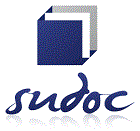Shabbat: Memory of the Feast of Creation. Feast that sings, reflects and dances with the Creator and with the creatures
DOI:
https://doi.org/10.23925/2177-952X.2017v11i19p94-107Keywords:
the Shabbat, Creation, Holiness, Blessing, Memory, CelebrationAbstract
The Decalogue or 10 Words is a text from the Torah of Moses that presents two versions of the same Sabbath commandment. One in the book of Exodus 20: 8-11 and another in Deuteronomy 5: 12-15. The first begins the commandment with the verb: make memory (remember) and the second, with the verb: save. In the first version, the commandment is connected to the memory of the Creation, while the second makes memory of the Liberation. This article sets out to deal comprehensively with the first version of the seventh-day commandment. In it the word shabbat appears in the feminine as an element of fecundity linked to the theological concept of Creation. The shabbat is an invitation to cease and rest to behold the Creator with family and creatures. It is a commandment-word whose experience results in blessing, sanctity, encounter and dance. It is a commandment-word-teaching that instructs the human being to become aware of his responsibility to be created to care for the neighbor and the world: our Common House to the end of history where all Creation tends to Shabbat Eternal in which the Creator / Liberator / Rabbi / Gracious God will be "all in all" (1Cor 15,28) in the Spirit through his Son: the Lord of the Shabbat (Mk 3,28) and time in which "all Israel shall be Saved "(Rom 11,26)Downloads
Published
2017-09-12
Issue
Section
Articles




